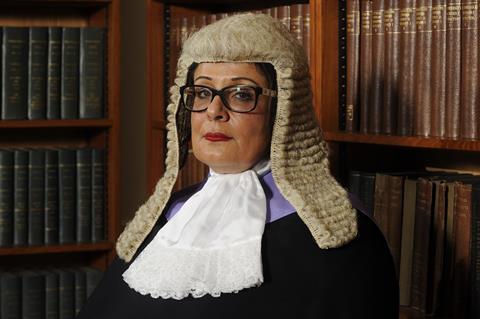Judges across the globe are uniting to create a ‘safe space’ for fellow judges to raise concerns and look out for each other, the Gazette can reveal.
Judicial wellbeing has come under the spotlight in recent years. Last year, the judiciary of England and Wales published a 'statement of expected behaviour' after research commissioned by the lord chief justice found examples of alleged bullying, harassment or discrimination. A survey conducted by the UN Office on Drugs and Crime’s Global Judicial Integrity Network found these problems are not unique to the UK.
Delivering the keynote speech at the London Criminal Courts Solicitors’ Association annual meeting on Monday night, Her Honour Judge Kalyani Kaul KC, a circuit judge in England and Wales, revealed that a ‘global judicial support network’ will be announced shortly.
Kaul, who took the Ministry of Justice, lord chancellor and lord chief justice to court over the handling of grievances she lodged against senior judges and court staff, is the founder of the Judicial Support Network, an independent support organisation for judges in England and Wales. She is acting chair of the global support network.

Kaul told the Gazette that the global support network’s steering committee includes judges from Tonga, the US, Uganda, Bangladesh, Nauru, Sri Lanka, and England and Wales. The network will support the aims of the Nauru Declaration on Judicial Wellbeing, which was officially adopted at a Regional Judicial Conference on Integrity and Judicial Wellbeing this summer.
Kaul said the main issues facing judges across the globe ‘are remarkably similar and judges need a safe space to raise concerns’, noting that there can be serious repercussions for judges in some jurisdictions who speak out. ‘We must help each other,’ Kaul said.
The committee is compiling a list of psychiatrists, psychologists, psychotherapists and counsellors who judges can speak to. ‘Triage judges’ will be bound by confidentiality undertakings.
‘So, if X judge has problems, s/he could be put in touch with Judge K in Uganda for mentoring and support, and to a senior psychologist in Trinidad/ Australia/UK for psychological support. No one need know, except the triage judges,’ Kaul said.
The committee will publish annual reports identifying positive initiatives across the globe, and negative themes, as a ‘gentle but effective way of promoting real change’, Kaul said.
‘I call it “Judges without borders”,’ Kaul added. ‘We hope this will support the UN Declarations, the Bangalore and Nauru principles, and result in a stronger, healthier, fairer and safer judiciary internationally, in the knowledge that the eyes of other jurisdictions are open and watching.’
This article is now closed for comment.



























4 Readers' comments